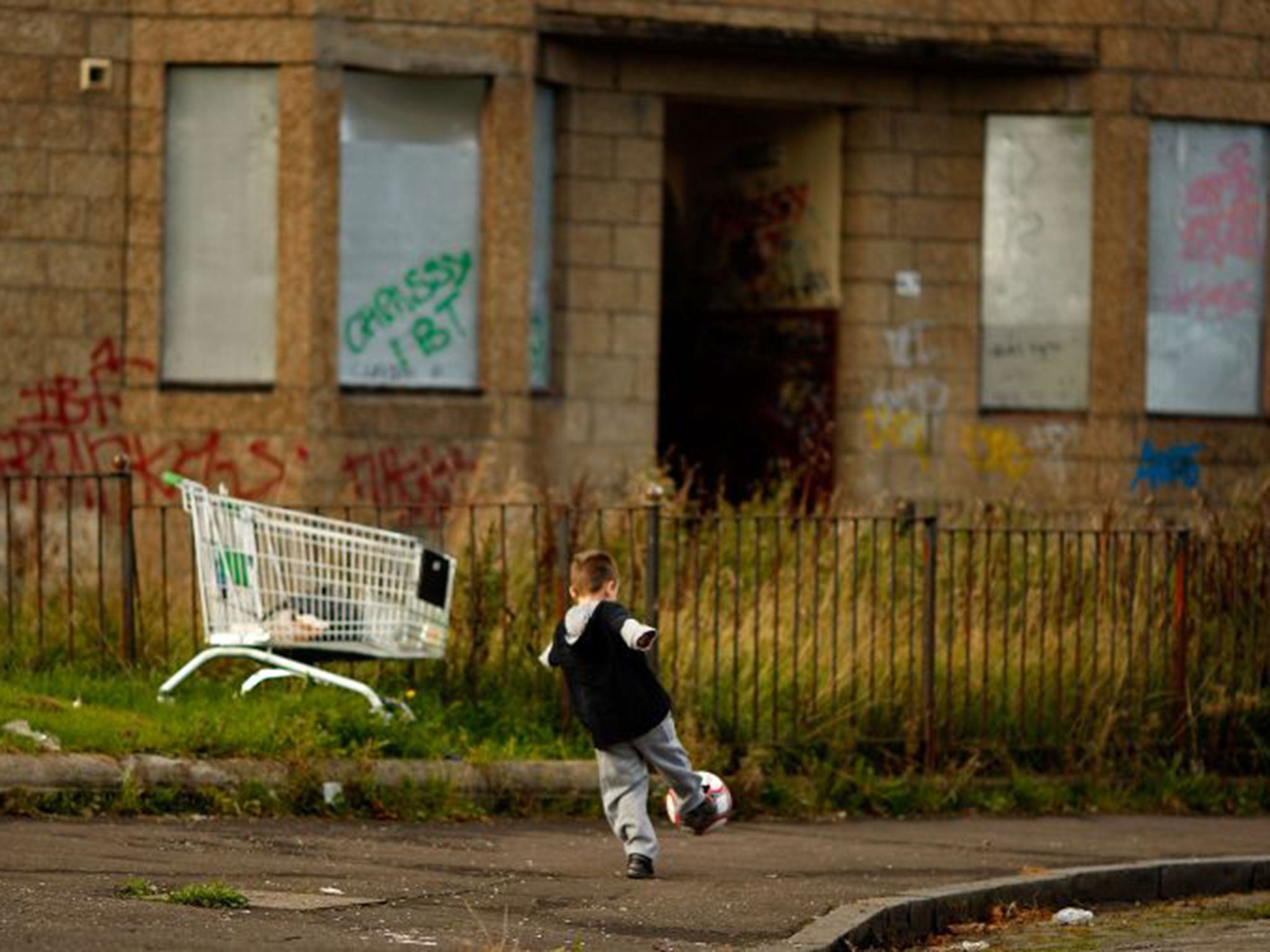If we keep on like this, child poverty is going to get a lot worse
An increased minimum wage is just a start in reversing the trend


Your support helps us to tell the story
From reproductive rights to climate change to Big Tech, The Independent is on the ground when the story is developing. Whether it's investigating the financials of Elon Musk's pro-Trump PAC or producing our latest documentary, 'The A Word', which shines a light on the American women fighting for reproductive rights, we know how important it is to parse out the facts from the messaging.
At such a critical moment in US history, we need reporters on the ground. Your donation allows us to keep sending journalists to speak to both sides of the story.
The Independent is trusted by Americans across the entire political spectrum. And unlike many other quality news outlets, we choose not to lock Americans out of our reporting and analysis with paywalls. We believe quality journalism should be available to everyone, paid for by those who can afford it.
Your support makes all the difference.This morning around 2.5 million British children woke up in a home scarred by poverty: the hidden victims of an economy that is failing to bring prosperity to typical families, and of austerity policies which hit those with least the most. These are the children forced to go without new school shoes, half-term daytrips or a healthy evening meal.
And despite the improving economic news, the outlook for child poverty is growing worse. Today a new Fabian Society report projects that a further 1.2 million children will fall into poverty between 2015 and 2030, an increase of almost a half.
The cause is not disappointing economic growth or high unemployment. Our calculations assume that GDP will grow by one third and high income families will reap huge rewards, their real disposable incomes ending £13,000 higher than today.
But low income families will barely gain at all, with typical incomes just £200 a year more than now. There are two reasons why. First, earnings differentials are expected to widen further, with low wages falling behind. Second, and more importantly, government policies are designed to do nothing to help low income groups keep up with everyone else.
Tax credits and benefits have become dirty words and, with the exception of the state pension, social security is designed to rise only with prices, not to track the growing prosperity of the nation. As a consequence we project that 3.6 million more people will slip into poverty by 2030, including 1.3 million disabled people and over half a million lone parent households.
And these calculations are quite cautious. In particular we have only looked at the effects of current government policy. Any new cuts to social security after the election will make the story even worse. Indeed, the Conservative plan to slash £12bn from the benefit bill could leave the living standards of low income Britain no higher in 2030 than in 2000.
But this catastrophic rise in poverty is not an inevitability. Political choices not unstoppable economic forces will determine what happens, so the search for alternatives should be at the heart of the General Election campaign.
Our report concludes that the next government should raise the minimum wage to 60 per cent of median earnings and set an ambitious target of an 80 per cent employment rate. We then propose that a Prosperity Fund is established, so that the revenues generated from these labour market policies can be recycled back to low and middle income families.
The fund could be used to pay for a big rise in Child Benefit or to increase benefits and tax credits in line with rising earnings – two measures which would significantly reduce the numbers in poverty.
So we should feel hope not despair. If the next government does nothing, or implements more cuts, the outlook for poverty is bleak. But if it embraces an agenda of full employment, action on low pay and a new Prosperity Fund, then millions of children can be lifted from poverty.
Join our commenting forum
Join thought-provoking conversations, follow other Independent readers and see their replies
Comments